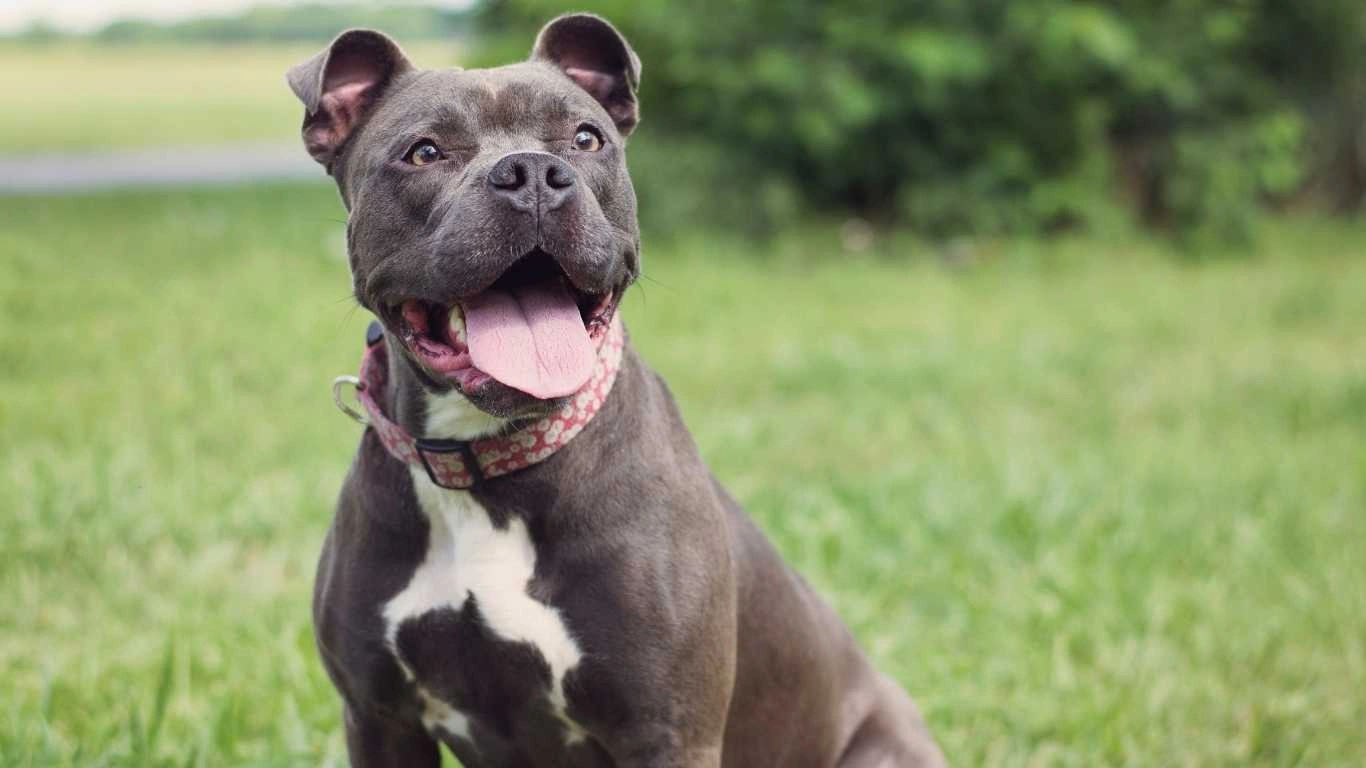Can Dogs Eat Cooked Oatmeal? Safe and Healthy Snack Tips
If you’ve ever found yourself wondering, can dogs eat cooked oatmeal? — you’re not alone. As an Animal Care Specialist who’s spent countless hours working in shelters and pet clinics, I get asked this question a lot. Oatmeal is a staple in many human diets because it’s healthy, filling, and easy to prepare. But when it comes to our furry friends, it’s important to know if it’s safe and beneficial or just another “no-no” in the pet food world. Let’s dive into what cooked oatmeal can do for dogs, and whether it’s a good idea to share your bowl with your pup.
Is Cooked Oatmeal Safe for Dogs?

First off, yes — dogs can eat cooked oatmeal. But as with any human food, there are a few important things to keep in mind before feeding it to your dog. In my years working directly with dogs at shelters, I’ve seen plenty of pets tolerate oatmeal quite well when introduced correctly. It’s all about moderation and preparation.
Cooked oatmeal itself is a great source of soluble fiber, which can help regulate your dog’s digestive system. This is particularly helpful if your dog struggles with constipation or irregular bowel movements. Plus, oatmeal contains essential nutrients like:
- Iron
- Calcium
- Vitamin B6
- Magnesium
- Antioxidants
These nutrients can support your dog’s overall health, especially if they’re on a diet that could use a little nutritional boost. But the key word here is moderation. Oatmeal should be considered a treat or a supplement to their regular meals, not a replacement for a balanced dog food.
How I Introduce Oatmeal to Dogs at the Clinic

When I first started using oatmeal in the diets of some of our shelter dogs, I made sure to follow a simple process that I’d recommend to any dog owner:
- Start small: Begin with a teaspoon of plain cooked oatmeal mixed into their regular food to see how they react.
- Watch for reactions: Keep an eye out for any signs of upset stomach, itching, or unusual behavior. Thankfully, most dogs tolerate oatmeal just fine.
- Stick to plain oatmeal: No sugar, cinnamon, raisins, or other additives — some ingredients can be toxic or harmful to dogs.
- Ensure it’s fully cooked: Raw or undercooked oats are hard for dogs to digest and could cause stomach discomfort.
After a few days of monitoring, if all looks good, I gradually increase the amount depending on the dog’s size and dietary needs. Personally, I’ve seen oatmeal help some dogs with mild digestive issues bounce back faster and feel more energetic.
Why Cooked Oatmeal Can Be a Healthy Addition to Your Dog’s Diet

Beyond just being safe, cooked oatmeal has several benefits that make it worth considering as an occasional addition to your dog’s diet:
- Digestive support: The fiber in oatmeal soothes the digestive tract and can prevent constipation.
- Low allergenic potential: Unlike wheat or corn, oats are less likely to trigger food allergies, which is great if your dog has a sensitive stomach.
- Energy boost: Oatmeal provides slow-releasing carbohydrates that help keep your dog’s energy steady throughout the day.
- Weight management: Because it’s filling but low in fat, oatmeal can help dogs maintain a healthy weight when used appropriately.
Of course, oatmeal isn’t a miracle food — it’s just one tool in your pet nutrition toolbox. Combining it with high-quality proteins and fats is key to ensuring your dog stays balanced and happy.
Potential Risks and Precautions When Feeding Oatmeal to Dogs

While cooked oatmeal is generally safe and can even be beneficial for most dogs, it’s important to be aware of some potential risks. From my hands-on experience working in shelters and clinics, I’ve seen that no single food suits every dog perfectly. Here are some precautions to keep in mind before making oatmeal a regular part of your dog’s diet.
Watch Out for Allergies or Sensitivities
Just like people, dogs can have food allergies or sensitivities. Although oats are less allergenic compared to grains like wheat or corn, some dogs might still react negatively. If you notice any signs such as itching, redness, swelling, or digestive upset after introducing oatmeal, it’s best to stop and consult your vet.
Avoid Additives and Sweeteners
One big mistake I often see pet parents make is feeding their dogs oatmeal with toppings that are toxic or unhealthy for dogs. For example, raisins, cinnamon, nutmeg, sugar, honey, and artificial sweeteners (especially xylitol) should never be given to dogs.
Always prepare oatmeal plain and cooked with just water. Milk might seem like a good idea, but many dogs are lactose intolerant, which can lead to stomach problems. If you want to make the oatmeal a bit tastier for your dog, a tiny amount of unsweetened pumpkin puree or plain yogurt (in moderation) can be a safer option.
Portion Control Is Key
Feeding oatmeal in excessive amounts can cause more harm than good. Oatmeal contains carbohydrates, so too much can contribute to weight gain or blood sugar spikes, especially in dogs prone to diabetes. From shelter work to home visits, I’ve observed that the right portion is usually just a small scoop mixed into their meal — think of it as a bonus rather than the main dish.
How to Safely Prepare and Serve Cooked Oatmeal for Your Dog

Preparing oatmeal for your dog is straightforward, but a few simple rules help ensure it’s safe and beneficial. Here’s my go-to method that I recommend to pet owners, based on years of hands-on experience:
- Use plain rolled oats: Instant oats might have added sugar or flavorings, so stick with plain rolled or old-fashioned oats.
- Cook thoroughly: Boil the oats in water until they’re soft and fully cooked. Avoid adding milk or any dairy.
- Cool before serving: Hot oatmeal can burn your dog’s mouth, so make sure it’s lukewarm or cool before offering it.
- Start small: Begin with just a teaspoon or two mixed into your dog’s regular food, especially if it’s their first time trying oatmeal.
- Observe: Keep an eye on your dog for any adverse reactions over the next 24-48 hours.
If your dog responds well, you can occasionally increase the amount, but always keep it balanced within their overall diet. Remember, oatmeal should complement a nutrient-rich, balanced dog food rather than replace it.
Mixing Oatmeal with Other Healthy Ingredients
To make oatmeal even more nutritious and appealing to your dog, you can mix it with some other healthy, dog-safe ingredients. Over the years, I’ve experimented with various combinations, and some of the most successful include:
- Pumpkin puree: Great for digestion and adds fiber.
- Plain yogurt: Adds probiotics that support gut health (just a small spoonful).
- Cooked lean meat: A little shredded chicken or turkey to boost protein.
- Carrots or green beans: Finely chopped veggies add vitamins and crunch.
Mixing these into cooked oatmeal not only improves taste but also creates a more balanced snack or meal topper that your dog will enjoy.
When to Avoid Feeding Oatmeal to Your Dog

Even though oatmeal can be a healthy treat for many dogs, there are certain cases where it’s better to steer clear:
- Dogs with grain allergies: If your dog has diagnosed grain allergies, oats might trigger reactions even if they’re less allergenic.
- Diabetic dogs: Because oatmeal contains carbohydrates, it can affect blood sugar levels and should be given only under veterinary guidance.
- Obese dogs: Extra carbs from oatmeal can contribute to weight gain if not accounted for in their overall calorie intake.
- Dogs with pancreatitis or sensitive digestion: Inflammation and digestive issues can be aggravated by introducing new foods.
If your dog falls into any of these categories, I always advise checking with your vet before introducing oatmeal or any new treat into their diet. Personalizing care is critical because what’s great for one dog might not work for another.
Tips for Incorporating Cooked Oatmeal into Your Dog’s Diet

Adding cooked oatmeal to your dog’s meals can be a simple way to boost nutrition, but it’s best done thoughtfully. From my experience in animal care, it’s all about making oatmeal a healthy, occasional addition — not a daily staple. Here are some practical tips I’ve learned from years of working with dogs in shelters and clinics.
Make It a Treat, Not a Meal Replacement
Oatmeal shouldn’t replace your dog’s regular balanced food. Think of it like a little bonus snack or a meal topper that adds variety and some extra fiber. When I introduced oatmeal to shy or picky eaters at the shelter, it often made their meals more enticing without overwhelming their digestive systems.
Keep It Plain and Simple
The fewer ingredients, the better. Dogs don’t need sugar, syrup, or spices, which humans might love but can cause digestive upset or even toxicity in dogs. A plain bowl of cooked oats, cooled to the right temperature, is perfect. Remember, I always advise avoiding any ingredients like raisins or nuts that are harmful to dogs.
Adjust Portions Based on Your Dog’s Size and Activity
Smaller dogs get smaller portions. For tiny pups, a teaspoon mixed into their meal may be plenty. For larger or more active dogs, a tablespoon or two can work fine as an occasional treat. The dogs I’ve cared for in shelters came in all shapes and sizes, so customizing servings based on individual needs is key.
Homemade Oatmeal Recipes Your Dog Will Love

Want to get a little creative with oatmeal while still keeping it dog-safe? Here are some simple recipe ideas I’ve found both shelter dogs and pet clients enjoy:
- Basic Oatmeal Mix: Cook ¼ cup plain rolled oats in ½ cup water. Let cool. Mix with a teaspoon of plain pumpkin puree for added fiber and flavor.
- Protein Boost: Prepare oatmeal as above and stir in a tablespoon of shredded cooked chicken or turkey. It’s a great way to add lean protein.
- Veggie Delight: Add finely chopped steamed carrots or green beans to cooked oatmeal. This adds vitamins and keeps the meal interesting.
- Yogurt Twist: Mix a spoonful of plain, unsweetened yogurt into cooled oatmeal to add probiotics for gut health.
These recipes are easy to customize, and I always encourage dog owners to observe their pets’ preferences and tolerances. It’s all about making mealtime enjoyable and healthy.
When to Consult Your Veterinarian
Although oatmeal is generally safe for dogs, if your dog has underlying health issues, it’s always smart to check with a veterinarian first. I’ve had cases where owners introduced oatmeal without realizing their dog had diabetes or pancreatitis, which require more tailored diets.
Your vet can guide you on the right portions and whether oatmeal fits into your dog’s specific nutritional needs. Remember, no matter how much love you put into your cooking, professional advice ensures your pup stays safe and thriving.
References
- American Veterinary Medical Association
- American College of Veterinary Surgeons
- American Animal Hospital Association
Disclaimer
This article is intended for informational purposes only and does not substitute professional veterinary advice. Always consult your veterinarian before introducing new foods into your dog’s diet, especially if your pet has pre-existing health conditions or allergies. While cooked oatmeal is generally safe for dogs, individual responses can vary, and what works for one dog may not be suitable for another.





